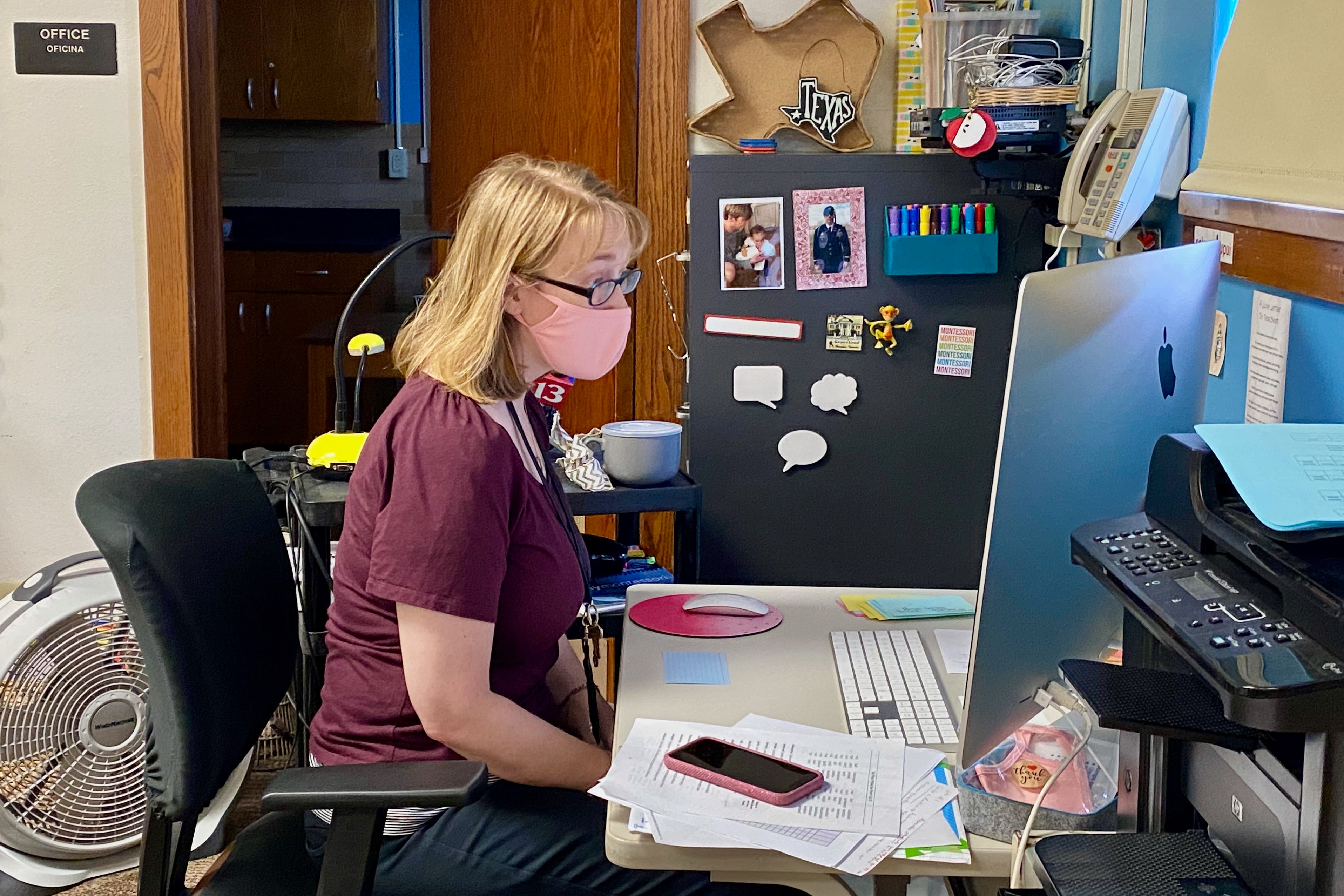Indiana teachers are expected to be part of the second phase of Hoosiers to receive COVID-19 vaccinations, state officials said at a press briefing Wednesday.
The state will make the first doses of the vaccine available to front-line health care workers who are likely to have contact with COVID patients, State Health Commissioner Kristina Box said. The state hopes to have enough vaccine for those front-line workers and long-term care residents by the end of this month, she said.
Schoolteachers would be part of the second phase of workers eligible for the vaccine, said Lindsay Weaver, chief medical officer for the Indiana State Department of Health. That group is expansive, including such people as firefighters, police, and retail workers, according to a preliminary state plan.
“Teachers are part of our critical infrastructure workforce,” said Weaver, who did not say when the second phase of vaccinations will begin.
“A lot about who we’re going to start vaccinating will depend on how much vaccine we get, when we’ll be getting it, and what is the safety and efficacy for that vaccine,” she said. “We are already in full planning mode to be able to start vaccinating that critical infrastructure when we have the vaccine and we’re ready to do so.”
Many Indiana schools have halted in-person instruction in recent weeks amid a surge in COVID cases across the Midwest. Last month, the Marion County Public Health Department limited schools to virtual instruction across Indianapolis at least until Jan. 15 because of rising COVID cases.
Staffing shortages have forced some schools and districts to close campuses because teachers and support staff were out sick or required to quarantine.
Weaver said she anticipates teachers being vaccinated will help schools stay open. Weaver also said new guidance from the Centers for Disease Control and Prevention reducing the length of quarantines could mitigate staffing shortages at schools.
The guidance issued Wednesday allows for quarantines of 10 days if people do not have symptoms or seven days if they also test negative for COVID. The CDC still recommends a more conservative 14-day quarantine, with the shorter options as alternatives.
States must submit details to the federal government by Friday on who should receive the first available vaccines. A federal advisory panel recommended Tuesday that health care workers, as well as residents and staff of nursing and long-term care facilities, should be the first to be vaccinated.
The vaccine will not be mandatory for any of the groups, Gov. Eric Holcomb said.





